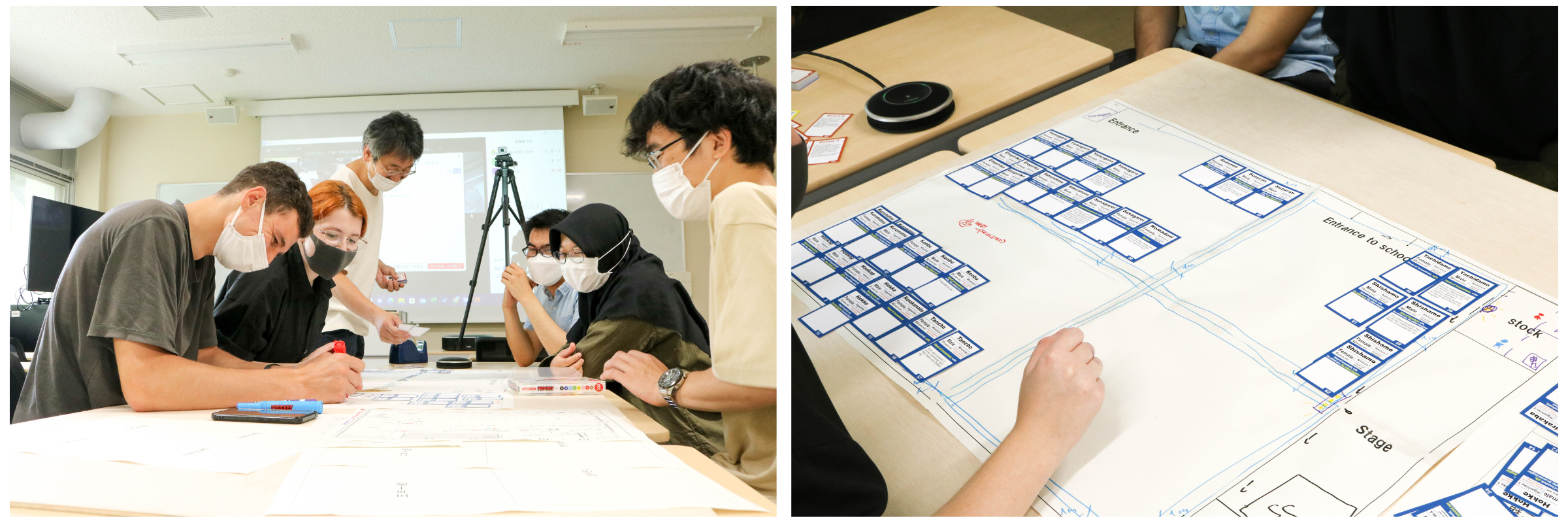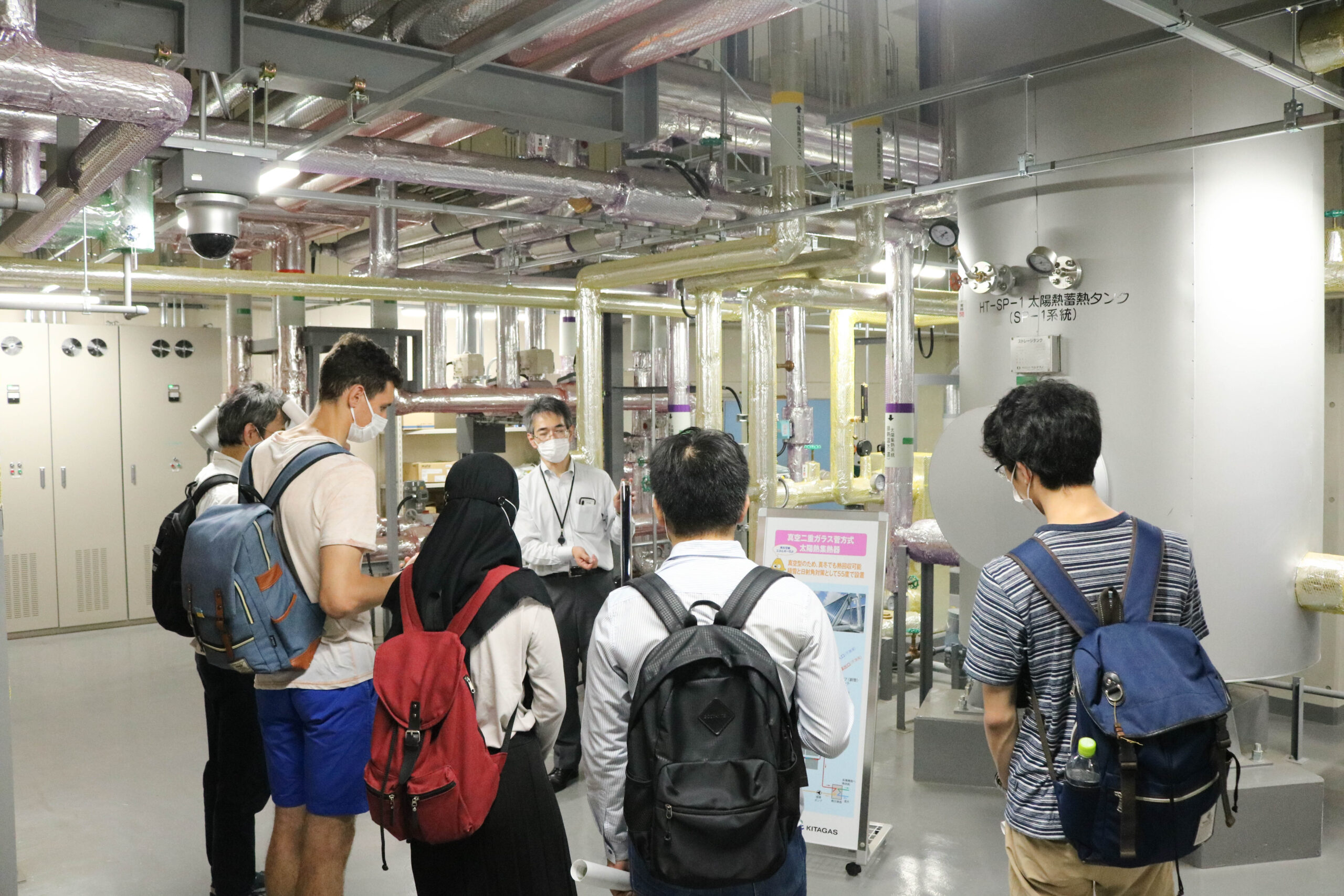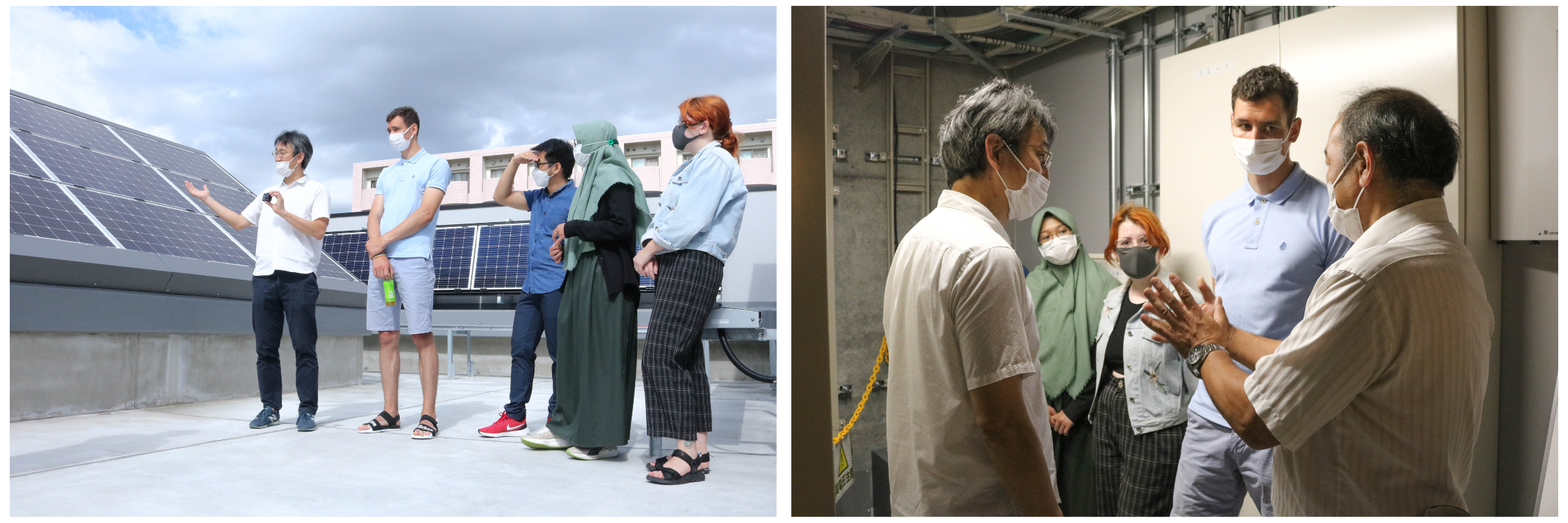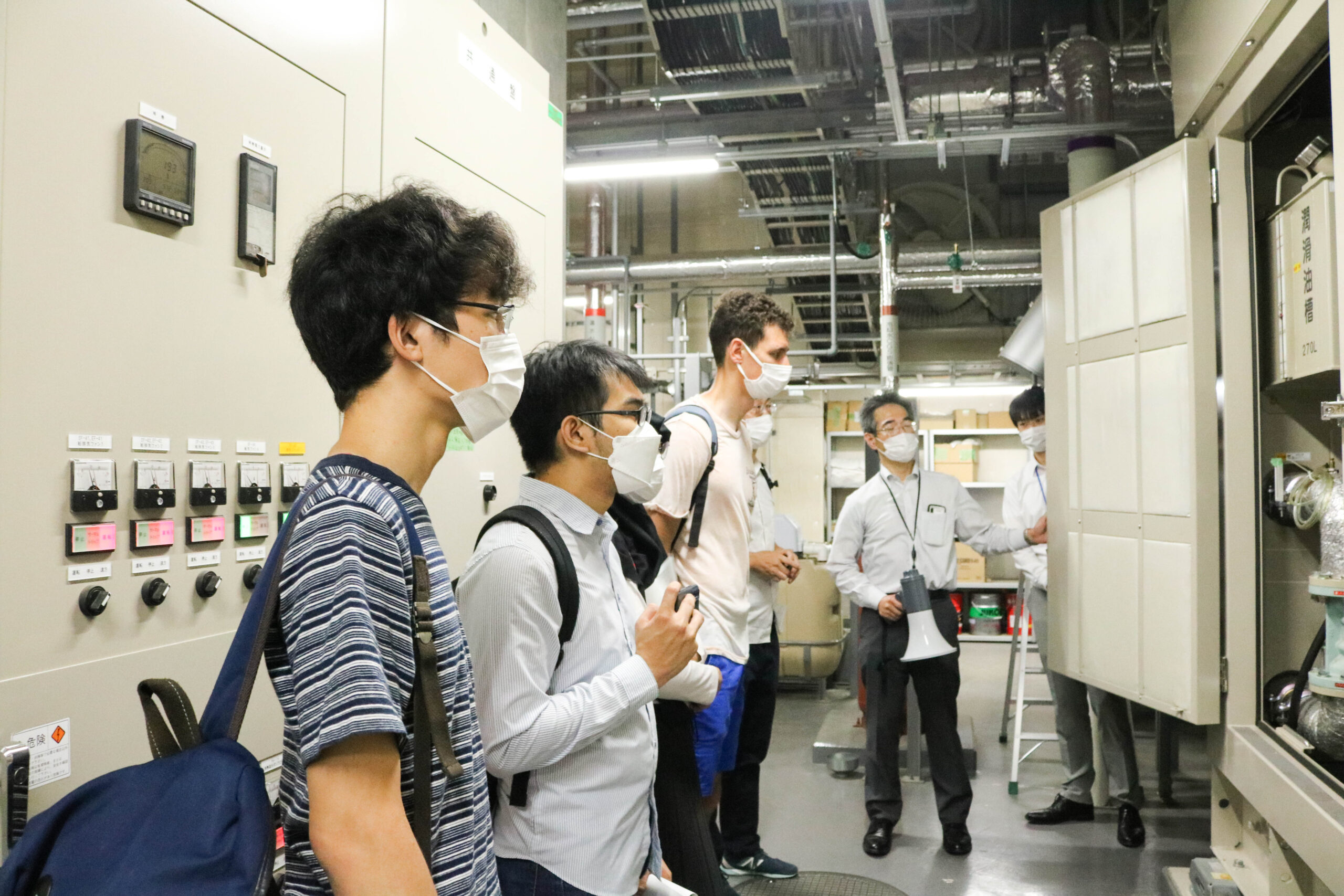HSI Report: SDGs Field Study ー Energy Security in Cold Climate Region
University News | August 26, 2022
Japan is not a stranger to natural disasters, notably earthquakes and typhoons. The 2018 Hokkaido Eastern Iburi Earthquake precipitated a large-scale blackout affecting the evacuation and recovery process. Reflecting upon the past experiences, the participants of this course learned what it takes to maintain stable and secure energy for disaster preparedness.
Associate Professor Taro Mori (Faculty of Engineering) facilitated the course which was held in a hybrid mode from August 1st to 5th, 2022. Three guest lecturers: Takafumi Nogawa (Hokkaido Electric Power Co., Inc.), Professor Ivo Martinac (KTH Royal Institute of Technology), and Dr. Sadaike Yuki (Tohoku University) shared their expert insights and experience on energy and disaster preventions. These laid the basic knowledge for the participants’ that were useful for the latter sessions of the course.
“In cold climates, when the energy supply is disrupted during severe cold weather, life faces a crisis. Buildings and energy systems need to be carefully planned to avoid such a situation. Through this program, students will learn what can happen in the event of a disaster and what technologies are available to mitigate such a situation,” said Associate Professor Mori.
Participation in this course does not require engineering and/or technical background, as exemplified by Jin Tian, a student from Beijing Normal University who attended the course remotely. “My main field of study is education, so being from a non-engineering background is a challenge because I lacked the knowledge of some technical terms. But I am always interested in SDGs. I enjoyed the Hinan-jo Un-ei Game (HUG) the best, but the overall course enriched my knowledge about energy.”

HUG (Hinan-jo Un-ei Game; Evacuation Site Management Game) activity in class. In this case study, students were challenged to come up with the best possible solution of managing an evacuation site for different types of families in a scenario where a disaster hits.
Associate Professor Mori arranged two separate one-day field trips so that students could learn and witness the practical applications of energy management and conservation. First, they visited a net Zero Energy Building (ZEB) near the Sapporo Campus area, a branch office of Daidan Company.
The technical staff guided the participants around the building, explaining in depth the building’s energy management. The total energy consumption of the entire building was reduced by 50% (of the building’s total energy usage in 2013) to tackle climate change. To supply the remaining 50%, the building was meticulously designed to use renewable energy, such as allowing natural lighting and air conditioning. To power the electricity and heating, rooftop solar panels and ground thermal heat pumps were installed.
The second field trip was made to the energy center of Hokkaido Gas Company in Sapporo City. A part of Kitagas Group, the energy center has a main role in supplying electricity and water to its surrounding area, including to the Kitagas Arena Gymnasium. From the staff’s explanation, participants learned about the Community Energy Management System (CEMS). In this principle, customers of the company are encouraged to conserve energy through visualization of energy consumption, using big data to forecast the usage, etc.
Concluding the course, each student presented energy security initiatives in their area of origin, in respect of the regional natural resources, governmental policy, and the most common disaster. The variety of scenarios gave opportunities for discussions and reflections.
Jerric Delfin is a master’s student from the Graduate School of Engineering, Hokkaido University. Although the situation faced by his country of origin, the Philippines, is different from Hokkaido, he claimed that both regions have the same need within the context of disaster: to reduce the damage and to expedite restoration. “Learning steady energy supply is important for my research that focuses on the thermoacoustic instability of a carbon-neutral fuel in combustors. So, I am now more inspired to work harder,” said Delfin.
To learn more about Hokkaido Summer Institute, visit their website:
https://hokkaidosummerinstitute.oia.hokudai.ac.jp/
Written by Aprilia Agatha Gunawan



